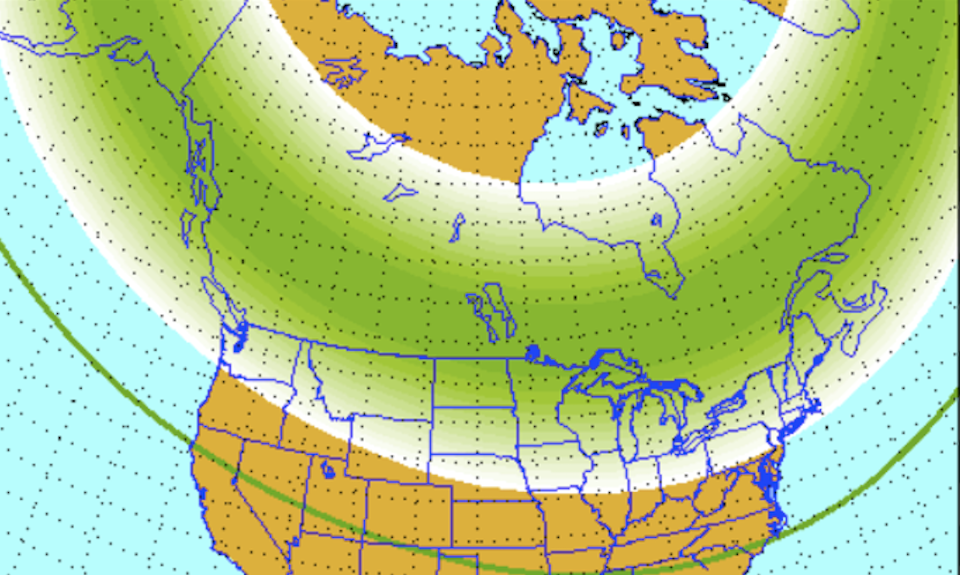Metro Vancouverites might be able to view the northern lights on two nights this week provided the skies clear.
The National Oceanic and Atmospheric Administration (NOAA)'s Space Weather Prediction Center says a coronal mass ejection with a strong solar flair was observed on Saturday, March 23 and periods of are possible on Monday, March 25.
On Monday, the University of Alaska Fairbanks (UAF) calls for very with normal light displays possible overhead "from Inuvik, Yellowknife, Rankin and Iqaluit, to Portland, Cheyenne, Lincoln, Springfield, and New York City." (See slide two.)
The university's shows what regions the aurora's green glow may be visible overhead and where it may be visible low on the horizon. Additionally, there is a brief description below the map of the aurora activity on that particular day. You can switch to other days to see the forecast, too.
The UAF's aurora viewing map shows the vibrant green glow covering well below Vancouver on Monday, meaning there could be opportunities to view the aurora overhead rather than only low on the horizon, weather permitting.
Other opportunities to view the northern lights in Metro Vancouver
There is a second opportunity to view the northern lights locally on Tuesday, if Mother Nature cooperates. However, the display wouldn't be visible overhead in Metro Vancouver.
The UAF says displays will be visible overhead in places further up north, including Inuvik, Juneau, Winnipeg and Thunder Bay; displays will be visible low on the horizon from "Seattle, Des Moines, Chicago, Cleveland, Boston, and Halifax." (See slide three.)
The Metro Vancouver weather forecast includes the possibility of showers on Monday night but Environment Canada meteorologist Armel Castellan says there may still be a chance to view the displays.
Since the forecast doesn't include periods of rain, there may be some breaks in the cloud coverage overnight.
"It's not the best forecast but it's not the worst," he told V.I.A.
How will you know when there may be some decent breaks in the cloud coverage?
Castellan recommends sky-watchers look at Environment Canada's for astronomical purposes. It shows when there may be clearer times when the aurora is active.
Stay up-to-date with hyperlocal forecasts across with V.I.A.'s Weatherhood.

